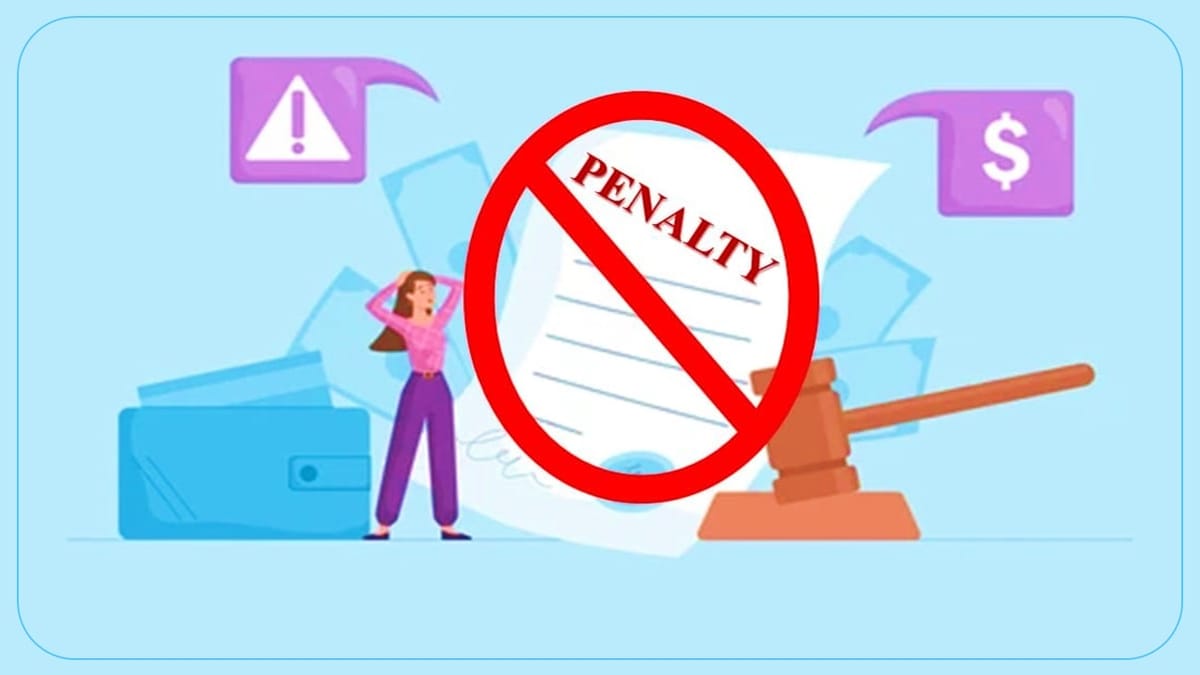The Income Tax Appellate Tribunal(ITAT) has deleted the penalty u/s 271(1)(c) with regard to Non-Disclosure of Income in ITR due to ignorance and mistake of Accountant.
Reetu | Jul 25, 2023 |

Non-Disclosure of Income in ITR due to ignorance and mistake of Accountant: ITAT deletes penalty u/s 271(1)(c)
The Income Tax Appellate Tribunal(ITAT Ahmedabad) has deleted the penalty u/s 271(1)(c) with regard to Non-Disclosure of Income in ITR due to ignorance and mistake of Accountant.
The return of income was filed on 30.09.2013 declaring total income at Rs. 10,81,480/- alongwith tax audit report under Section 44AB of the Income Tax Act, 1961. The return was processed under Section 143(1) of the Act. The case was selected for scrutiny and statutory notices were issued. The Assessing Officer made addition of Rs. 2,15,471/- as Long Term Capital Gain and 13,091/- as interest income. The Assessing Officer initiated penalty proceedings and issued show cause notice under Section 274 r.w.s. 271(1)(c) on 21.02.2016. The assessee filed reply which was taken into account. The Assessing Officer imposed penalty of Rs. 48,435/- in respect of furnishing inaccurate particulars / concealment of income.
Being aggrieved by the penalty order the assessee filed appeal before the CIT(A). The CIT(A) dismiss the appeal of the assessee.
The Ld. A.R. submitted that there is a delay of 513 days for which the assessee has filed the condonation of delay alongwith the affidavit stating therein the reason as the assessee in the quantum matter did not prefer the appeal due to smallness of amount and therefore, after receiving the order of the CIT(A) the assessee was not aware the penalty order has to be challenged within the stipulated time and therefore, the assessee at that particular juncture did not file the appeal but on 24.01.2019 show cause notice for launching prosecution under Section 276C(1) was issued alleging the default of willfully attempting to evade taxes in respect of capital gain. Therefore, the delay may be condoned as prayed by the Ld. A.R. The Ld. D.R. vehemently oppose the delay. The explanation given by the assessee for condoning the delay appears to be genuine and therefore, the delay is condoned.
The Ld. A.R. submitted that the accountant of the assessee was unwell during the period of 2013 and therefore, the accountant of the firm had to finalize the particulars of income of the assessee. The assessee further submitted that the said accountant was admitted to the hospital during the subsequent period and therefore, the correct return of income was not filed stating therein the Long Term Capital Gain. The assessee has filed the revised return of income before the Assessing Officer thereby disclosing all the relevant income including the long term capital income and interest income. Thus, the Ld. A.R. submitted that the mistake on the part of the accountant cannot be held as a mistake of the assessee and the same should not be treated as furnishing inaccurate particulars of income / concealment of income as the assessee has filed revised return of income with the correct quantification of LTCG and interest income. The Ld. A.R. relied upon the decision of Hon’ble Apex Court in case of Price Waterhouse Cooper Pvt. Ltd. vs. CIT 348 ITR 306 (SC).
The Ld. D.R. submitted that the assessee has filed inaccurate particulars of income as the assessee has not disclosed Long Term Capital Gain as well as the interest income. If the Assessing Officer has not pointed during the assessment proceedings the assessee might have not furnished the revised return of income. Therefore, this is a fit case for imposing the penalty and the order of the CIT(A) sustained.
Heard both the parties and perused all the relevant material available on record. It is an admitted position that there was a mistake on part of the accountant for which the assessee has filed the affidavit of the accountant as well. From the perusal of the affidavit it appears that during the preparation of the particulars of return of income for A.Y. 2013-14 the said accountant was unwell and the subordinate accountant being ignorant above the actual quantification has filed incorrect return of income. The mistake on part of the accountant cannot be treated as mistake of the assessee and therefore, the decision of Hon’ble Supreme Court in case of Price Waterhouse Cooper Pvt. Ltd. (supra) is squarely applicable in the present case. The Assessing Officer as well as the CIT(A) was not right in imposing the penalty under Section 271(1)(c) of the Act. The appeal of the assessee is allowed.
For Official Judgment Download PDF Given Below:
In case of any Doubt regarding Membership you can mail us at contact@studycafe.in
Join Studycafe's WhatsApp Group or Telegram Channel for Latest Updates on Government Job, Sarkari Naukri, Private Jobs, Income Tax, GST, Companies Act, Judgements and CA, CS, ICWA, and MUCH MORE!"